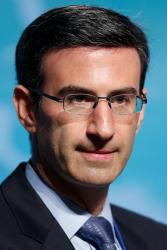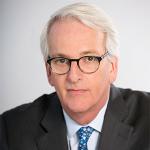Since the attacks of September 11, 2001, a good deal has been done to improve the safety of Americans, not only in the offensive war on terror abroad but in protecting the homeland as well. Americans, aware now of the harm terrorists can inflict, are on alert, providing a first, crucial line of defense. Air travel is now much safer. Intelligence sharing has improved, especially information about specific individuals suspected of ties to terrorism. Measures have been taken to ensure that suspicious ships entering U.S. waters are screened more frequently. Some early steps have been taken to reduce the country’s exposure to biological attacks, with more to follow, and oversight has been tightened on labs working with biological materials. Terrorism insurance is now backstopped by a new federal program. Certain types of major infrastructure, such as well-known bridges and tunnels and nuclear reactors, are protected by police and National Guard forces when terrorism alerts suggest that such measures are necessary.
But much, much more remains to be done. Most of the above steps reflect a response to past tactics of al Qaeda, not an anticipation of possible future innovations in how that organization or other terrorist groups might try to harm Americans. Moreover, most of those steps were taken in the immediate aftermath of September 11. In 2002, the country lost a good deal of momentum on improving homeland security. The primary focus of Washington policymakers in 2002—creation of a department of homeland security—may have some merit, though we believe the department to be larger and more complex than desirable or necessary. But the department will not in and of itself make Americans safer. To the contrary, the complexity of merging so many disparate agencies threatens to distract from other, more urgent security efforts. Moreover, excessive focus on organizational matters during the past year was one reason Congress has so far failed to pass a federal budget for homeland security for 2003. Even assuming that budget is soon passed, valuable time will have been lost in buttressing our national defenses against terrorist attacks. In addition, President Bush vetoed several specific (and relatively cost-effective) measures proposed by Congress that would have addressed critical national vulnerabilities. As a result, the country remains more vulnerable than it should be today, on the eve of a likely war against Iraq that could inspire more terrorist attacks. In all, we have squandered precious time bought by the disruption of al Qaeda in Operation Enduring Freedom that should have been used to prepare ourselves against the next major strike.
A major unmet agenda for homeland security must be addressed in 2003. New organizations, and in particular the new department of homeland security, must be built. Primary initial focus should be placed on those elements of the department focusing on border security, on intelligence, and on the federal government’s interactions with state, local, and private actors in their efforts to improve the country’s safety.





